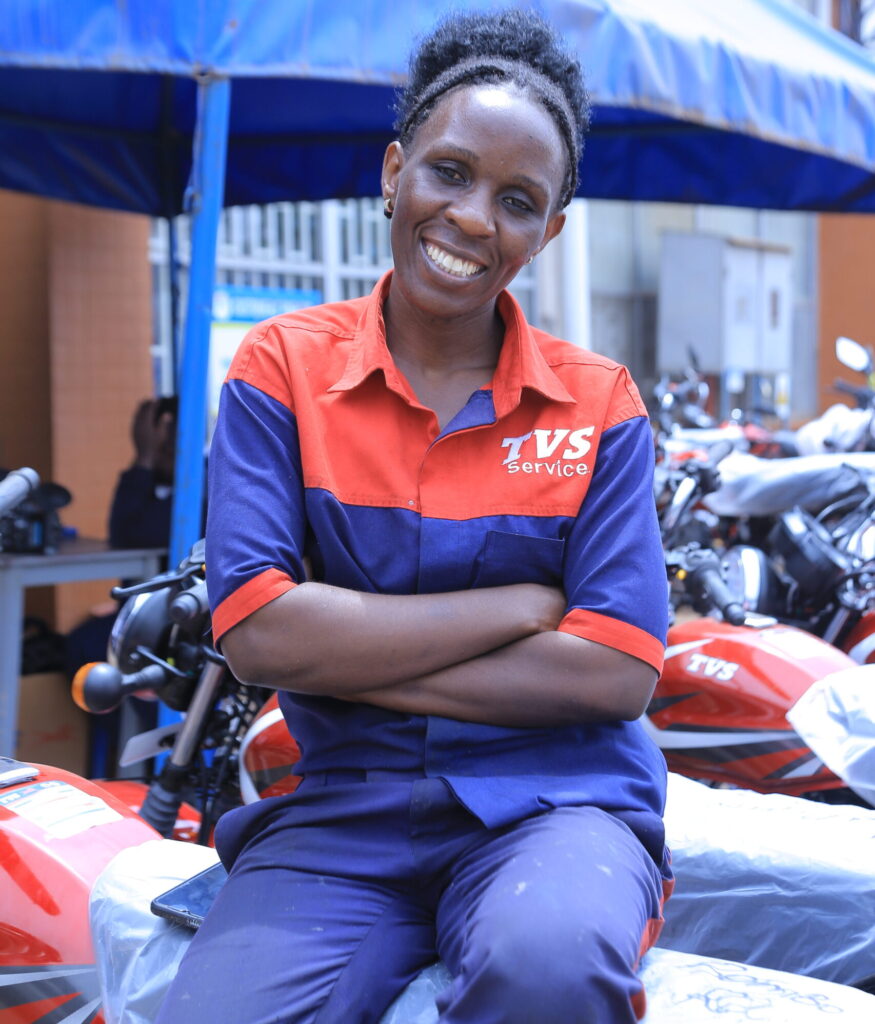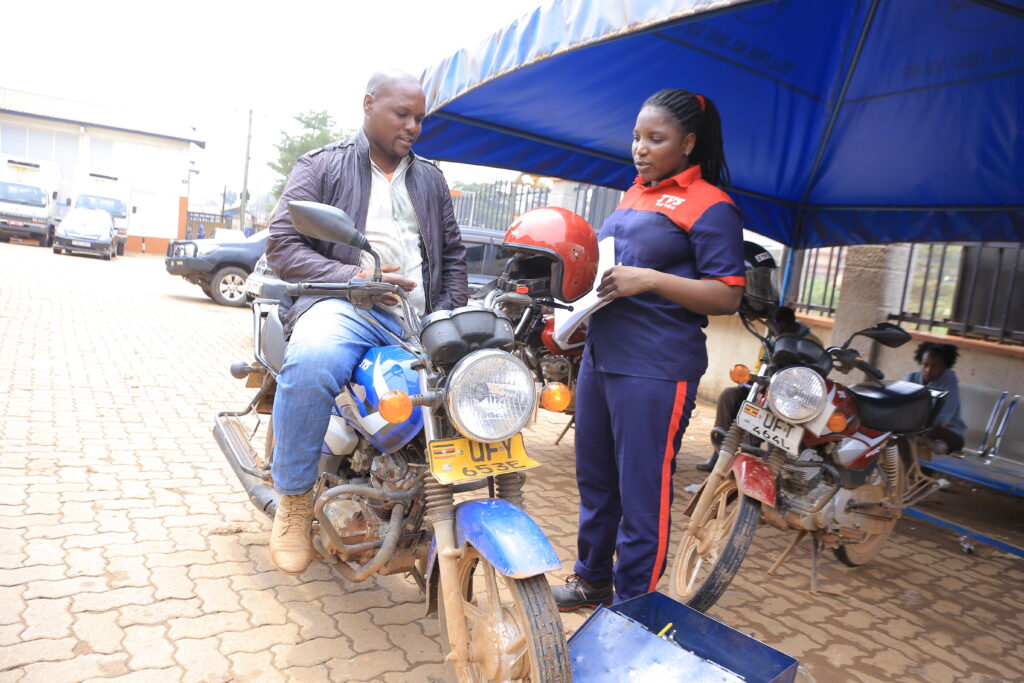It takes boldness for a woman to step into a field dominated by men in Uganda. And, this is what 30-year-old Allen Namuwonge is exactly doing.
The mother of two, is leading many of her colleagues into the motorcycle taxi industry, (locally known as boda boda) not as riders but as service engineers.
“I assemble, repair and train other women in motorcycle repair and mechanics not only to improve the industry but make money out of the service,” Namuwonge explains.
The bodaboda industry is the largest form of transport in Uganda and employs over 1.3 million young people everyday in both urban and rural communities.
Each bike traverses about 100 kilometres each day. However, the poor maintenance, wear and tear have made them killer machines.
According to the 2023 police report, motorcycles account for the largest number of accidents on Ugandan roads. In 2022, motorcycle-related accidents killed 1,422 people and injured a total of 401, accounting for 43% of accident cases in the country.
“Our purpose as women engineers is to improve this sector by providing repair and maintenance services. We work in the background as engineers to ensure that each bike on the road is fit for movement and also makes a living,” Namuwonge explains.

Allen Namuwonge sits on a bike she has just assembled at Yuvraj Uganda assembly center outside Kampala. Photo by Moses Sserunjogi.
Over 1200 young women are operating in over 650 motorcycle service points in Uganda as service engineers in a model being pioneered by Yuvraj Uganda, the largest motorcycle importer in partnership with the Private Sector Foundation (PSFU), an umbrella organisation for private business players.
The women work on assembling lines, track riders through a call centre and constantly remind them about repair and service as a way of ensuring that the bikes are in a good mechanical condition.
According to Spencer Kansiime, the Head of Service and Project Manager, Yuvraj International, about 19000 motorcycles are imported in the East African country every month.
“This amounts to one million motorcycles in a period of four years. It means these motorcycles need to be serviced, they need to be repaired. So we need so many young people that will actually come and take up these roles, repair and operate but also put up good infrastructure where the motorcycles can be repaired,” Kansiime explains.
In Uganda’s booming boda boda and motorcycle trade, women have not been anywhere in the picture. However, the model has purposed to bring them on board as active participants.
“We started up a policy of employing female mechanics because we want to inspire so many of them and so far so good,” Kansiime adds.
The women are selected from different communities in the country through social solidarity models. They are taken through a six-months repair and assembling training program.

A service engineer speaks to a motorcycle rider at a service point in Banda, outside Kampala. Photo by Moses Sserunjogi.
After training, they are encouraged to start repair points and also train other women that could be interested in the same field. Since 2019, the model has served over 2000 women mostly in Kampala.
“We are working with them as trainers, to go out there and let other young women know that it is possible and they can get into this space, do a good job and also better their lives,” says Apollo Muyanja Mbazzira, the Project Director Lead Firm at the Private Sector Foundation.
For Namuwonge, the journey into the mechanical trade started in 2022. Before that, she had been a tailor but things were not working out. However things never worked out as she resorted to mechanics.
“What persuaded me to join the motorcycle industry was the fact that I was struggling so much and by then I was a tailor with a boutique but a point came I would no longer get money yet I had to take care of my children,” she explains.
Namuwonge trained in service engineering with many other women and turned out to be one of the best amongst her team.
She has since developed a deep love for the spare parts and is now addicted to being at the production line most of the time.
Her clients attest to her excellence when it comes to repairing their motorcycles which makes some male mechanics find challenges working with her and teaching her certain skills.
“We are usually given mechanics to train us in different fields of mechanics but someone chooses to insult you because there is nothing you can do to them and because you know you will need their help again, you choose to ignore and let go,” she says.
Women seeking to make it into sectors previously defined as male domains in the developing country of Uganda, are vulnerable to many challenging issues, including discrimination, sex violence, and unequal pay.
According to Dr. Anne Abaho, the Dean of Social Science at Nkumba University, there is a need for concerted effort from all players to ensure that women are given the necessary support to thrive in such environments.
“If women have availed themselves and are willing to work, we need to create an environment that allows them to thrive. If a woman knows that if she goes away for (maternity) leave for three months you are not going to pay her, chances are very high she will withdraw from that,” Dr. Abaho says.
Namuwonge however stresses the need for every woman to exercise determination and overlook the insults which then, will help them cooperate and work together with the men.
Recent News
© 2022 - Media Challenge Initiative | All Rights Reserved .


